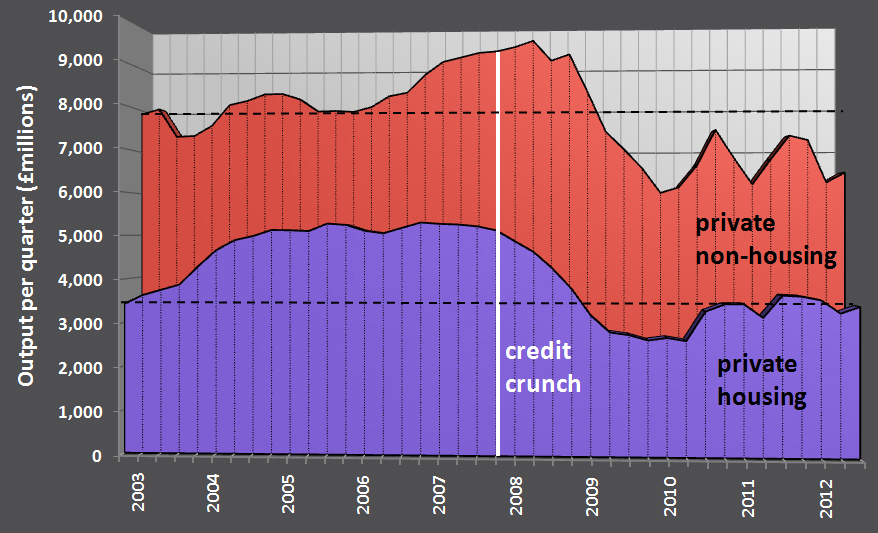Credit crunch
A credit crunch (or credit squeeze or credit crisis) is an economic state characterised mainly by a sharp drop in confidence and a lack of credit (or loans). At such times, usually brought on by a shortage of funds, financial organisations are less willing to lend money which can lead to a rapid economic slowdown. At any official rate of interest, credit becomes less available than it was previously.
Credit crunches frequently occur at the tail end of a recession and can also follow periods in which lenders are overly keen, even careless, when estimating customers’ creditworthiness. When such bad debts cannot be paid, losses are suffered by lending institutions and investors. Typically, such times will see lenders and investors retreating to less risky investments such as gold, silver and other precious metals.
The opposite of a credit crunch is ‘easy credit’ (or easy money or loose credit). These conditions usually involve easy-to-get, inexpensive loans that are a result of low interest rates for borrowers and relaxed lending policies by banks.
The term 'credit crunch' in the UK has become synonymous with the period following the 2007 financial crisis which followed a collapse in the sub-prime lending marked in the USA. A number of financial institutions had to be bailed out by governments, and the resulting debt, loss of confidence and withdrawal of credit dragged economies worldwide into recession.
The construction industry was particularly badly affected as finance became unavailable, investment was canceled and projects stalled.

|
| Private sector housing and non-housing. Output/quarter (£millions 2005 prices) in Great Britain |
[edit] Related articles on Designing Buildings Wiki
Featured articles and news
Inspiring the next generation to fulfil an electrified future
Technical Manager at ECA on the importance of engagement between industry and education.
Repairing historic stone and slate roofs
The need for a code of practice and technical advice note.
Environmental compliance; a checklist for 2026
Legislative changes, policy shifts, phased rollouts, and compliance updates to be aware of.
UKCW London to tackle sector’s most pressing issues
AI and skills development, ecology and the environment, policy and planning and more.
Managing building safety risks
Across an existing residential portfolio; a client's perspective.
ECA support for Gate Safe’s Safe School Gates Campaign.
Core construction skills explained
Preparing for a career in construction.
Retrofitting for resilience with the Leicester Resilience Hub
Community-serving facilities, enhanced as support and essential services for climate-related disruptions.
Some of the articles relating to water, here to browse. Any missing?
Recognisable Gothic characters, designed to dramatically spout water away from buildings.
A case study and a warning to would-be developers
Creating four dwellings... after half a century of doing this job, why, oh why, is it so difficult?
Reform of the fire engineering profession
Fire Engineers Advisory Panel: Authoritative Statement, reactions and next steps.
Restoration and renewal of the Palace of Westminster
A complex project of cultural significance from full decant to EMI, opportunities and a potential a way forward.
Apprenticeships and the responsibility we share
Perspectives from the CIOB President as National Apprentice Week comes to a close.
The first line of defence against rain, wind and snow.
Building Safety recap January, 2026
What we missed at the end of last year, and at the start of this.





















